“A victory for all our members who voted for industrial action”: the FDA’s breakthrough on Fast Stream pay
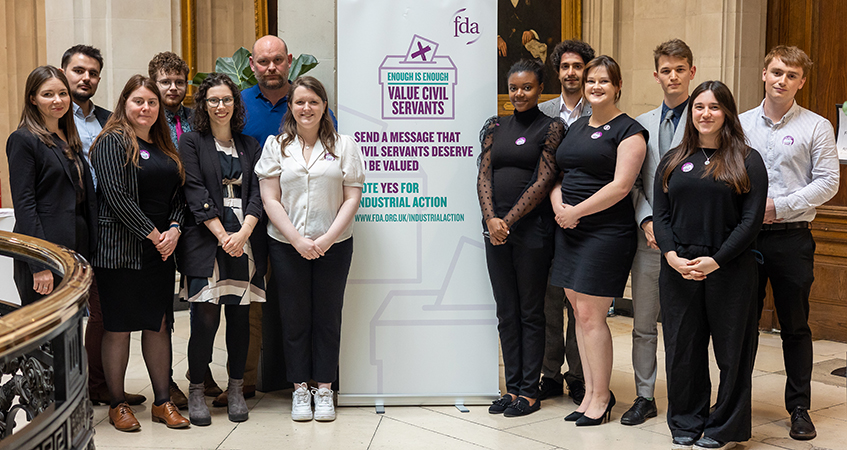
To add further complication to an already complex exercise, the ballot was due to be conducted right over the Christmas period
The team of reps mounted a huge campaign to ensure both a “yes” vote for industrial action, but also to make sure the necessary 50% turnout threshold was met for the result to be valid under the legislation. As well as regular email communications and regular ‘phone banking’ sessions, members also used WhatsApp and LinkedIn to share key messages, as well as photos and gifs of their trip to post their ballot paper, in often very wintry weather – helping to reinforce the importance of ballot papers being returned quickly. The union also made use of peer to peer (P2P) text messaging for the first time, which enabled reps to communicate directly with large numbers of members – encouraging their colleagues to vote and answering any questions or concerns they had quickly, reaching parts of the membership who perhaps might not have engaged with email or other communication.
When the ballot closed on 16 January, the message was clear. On a turnout of 60%, 88% of members had voted in support of strike action, with Crowley arguing they had sent “a clear message: they will no longer put up with unfair pay”. She urged the Cabinet Office, even at that late stage, to re-engage in negotiations, make a meaningful offer and avert strike action. Penman added that the FDA had “been urging the Cabinet Office for years to address low pay in the Fast Stream, but there has been an abject failure to embrace meaningful reform. Instead, for far too long, the dedication and commitment of Fast Streamers has been exploited”.
The Fast Stream Section Committee also took their fight to the Trade Unions Congress, moving a successful motion Stream at the TUC Young Workers Conference calling for better pay for career entry schemes. Section Convenor Allan Carmen argued that “young workers are not receiving the liveable wages they deserve for the work they put in”. He pointed out that there had been “chronic underinvestment” in these schemes, and that “unfair pay makes our workforce less diverse and so less representative”.
Carmen noted that the situation was now so bad that FDA Fast Stream members had voted in favour of industrial action for the first time ever. He pointed to FDA survey data which found that members “were skipping meals, relying on parents for financial aid, or leaving early altogether for better pay to live on. This is despite being in full-time employment”.
Following the successful ballot, however, Crowley notes that there was a definite shift in the relationship between the union and the employer. There was a commitment to find a deal that worked for Fast Streamers. Although it was complex, with ministerial, permanent secretary and Treasury sign off needed once agreement was reached with the Cabinet Office pay team, “there was much more of a sense that we were working together as a team”.
Nevertheless, the negotiations were complicated and time-consuming, with many layers of approval to get through, and took many months to complete: “There was a long period following the strike ballot when we couldn’t say anything.” That put an additional pressure on the team of reps who worked tirelessly to keep members, who understandably were keen to see progress after voting for strike action, engaged and motivated. General Secretary Dave Penman described the reps as “an inspiration to the whole union” through their “intelligence, graft and pragmatism”. In the end, however, a deal was reached that addressed many of the FDA’s concerns and would represent the biggest pay uplift in the history of the scheme.
The deal, which will see some Fast Streamers receive pay rises of up to 22.5%, was put to FDA members in a ballot in August 2023, and was overwhelmingly accepted, with 94% of members voting in favour of the deal on a turnout of 68%. Speaking after the result was announced, Crowley credited the result to the members who had backed strike action and “brought the Cabinet Office back to the negotiating table. The overwhelming mandate for action demonstrated the anger Fast Streamers felt about years of empty promises of reform”. She welcomed the “substantial offer” that would make a real difference to some of “our most talented and dedicated public servants. The work on Fast Stream pay is not finished, but this deal will lead to significant salary increases and represents a victory for all our members who took the difficult decision to vote for industrial action”.
Indeed, Crowley is keen to stress that the work on Fast Stream pay is only just beginning: “This is a good start, but it isn’t yet a finished package.” She points out particularly that issues remain for those ‘non-centralised’ Fast Streamers who are employed by individual government departments rather than the central scheme, and the FDA will continue to push departments to implement equivalent uplifts. The Fast Stream Section is also committed to ensuring that “we don’t find ourselves in the same situation in years to come, we need to really push on in future pay rounds”.
Penman agrees, saying that the union hopes that attrition rates in the Fast Stream will fall and that better investment “in these incredibly talented, inspiring public servants will deliver better services in the future”. However,
he stresses that for the reform to be effective in the longer term, “Fast Stream salaries need to be competitive with general civil service grades, as well as the external market”. He also reflected that, while the result was a testament to the hard work and dedication of our reps, it should not have reached this point: “It shouldn’t be this hard to reform pay. All the evidence was there that it was desperately needed. It shouldn’t have taken a strike ballot to jolt the government into action. Ministers, the Treasury and the civil service leadership need to work harder to be enablers of reform, not blockers.”
“This is what can be achieved when members really want something, and when you have a set of reps really attuned to the needs of those members”
Ultimately though, the historic deal was possible, says Crowley, because of “the bravery of our Fast Stream members. This is what can be achieved when members really want something, and when you have a set of reps really attuned to the needs of those members. We’ve been through two different committees since the pay talks started – there is only one committee member left who was there when we started. Everybody mucked in, everybody played their part”.
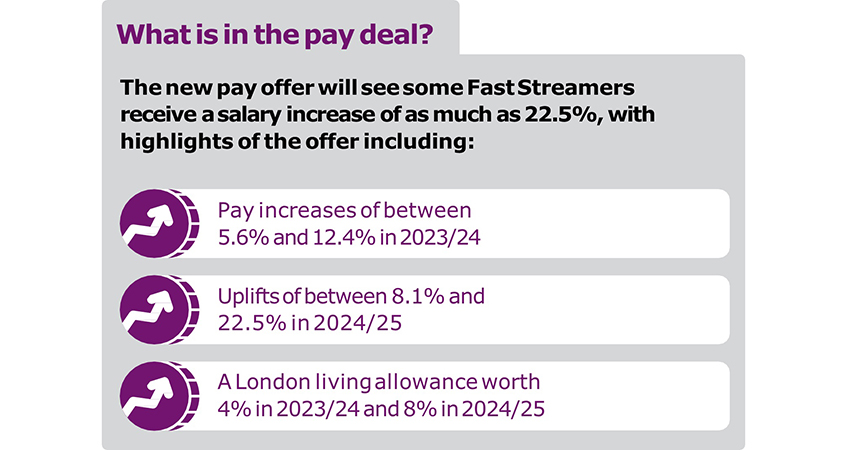
“Before the pay award, I was seriously considering leaving”- what the deal means for FDA members
“Before joining the civil service as a Fast Streamer I had a relatively well-paid, if uninspiring, career. I joined knowing that I would be taking a pay cut but I was not expecting the cost-of-living crisis to hit so hard. I have two children, not to mention a household of pets, to support, and before the pay award I was seriously considering leaving the scheme. The money going out each month was increasing and my wages just were not keeping pace. Thankfully, the pay award means I can continue to my final year without being under financial pressure every month. Without it, I have no doubt I would have left by now.” Bruce
“I moved to London in October 2022 for the Fast Stream and began renting in South London. The first year salary was only just covering my rent and living costs, leaving no extra money at the end of the month. With the cost-of-living crisis and rents creeping up, as my rental contract was coming to an end, I was becoming really anxious about whether I could afford to stay in London at all. The Fast Stream relocates us all around the country and doesn’t recognise financial hardship as a reason for Fast Streamers not to be placed in more expensive areas like London and the South East. I was left questioning whether I would be able to continue on the scheme, but the pay deal including London weighting is a massive relief. I can afford to stay in my flat next year and won’t go through the upheaval of moving again. I live with my partner and it also means he won’t have to move either.” Niamh
Related News
-
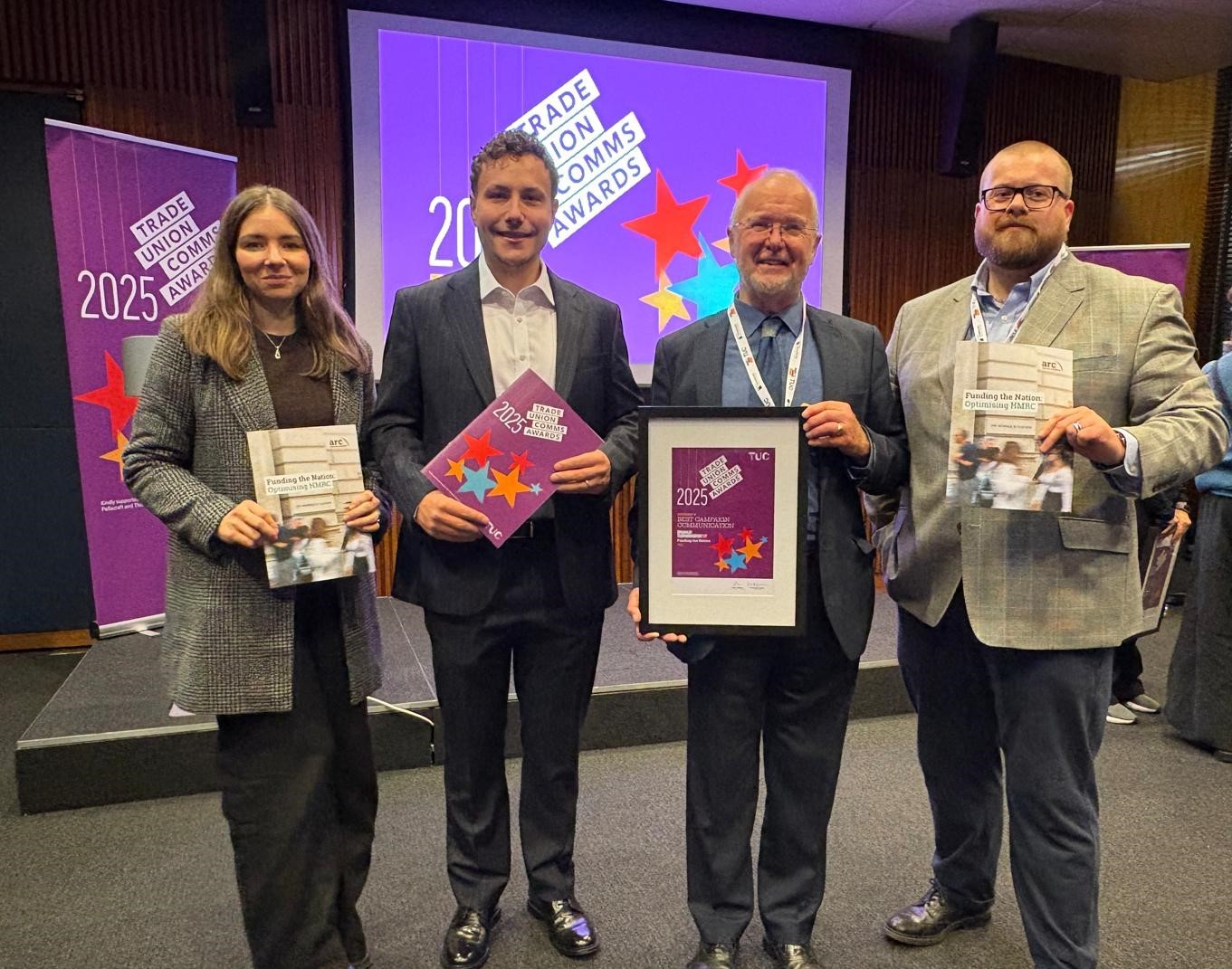
FDA highly commended for Funding the Nation campaign at 2025 TUC Comms Awards
The FDA is delighted to have been highly commended in the Best Campaign Communication category for ‘Funding the Nation’ at this year’s TUC Comms Awards.
-
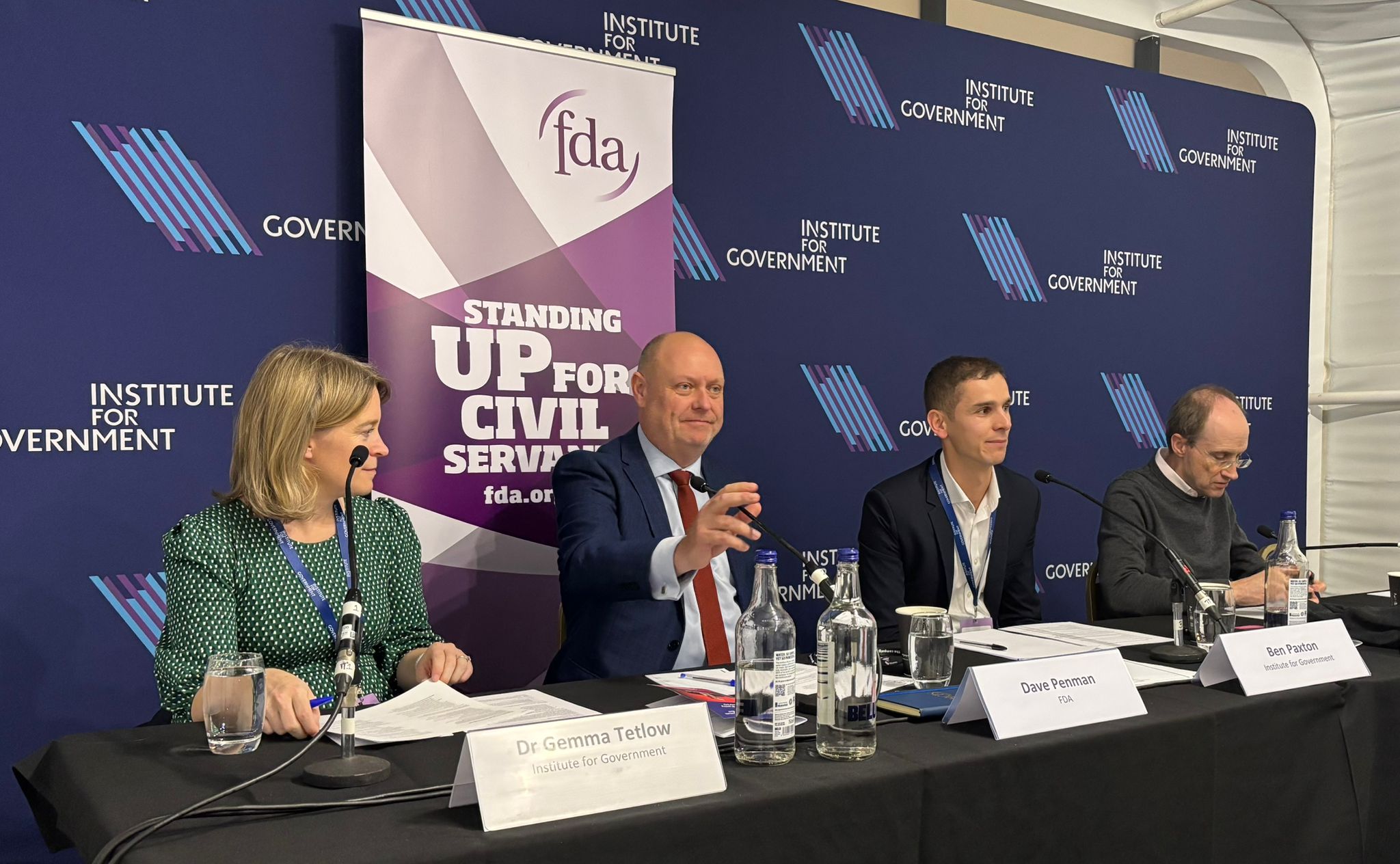
Government has “no strategy” on long-term pay and reward issues, says Penman
FDA and IfG hosted a joint fringe event at this year’s Labour Party Conference in Liverpool, discussing ‘Should public sector pay and pensions be reformed?’
-
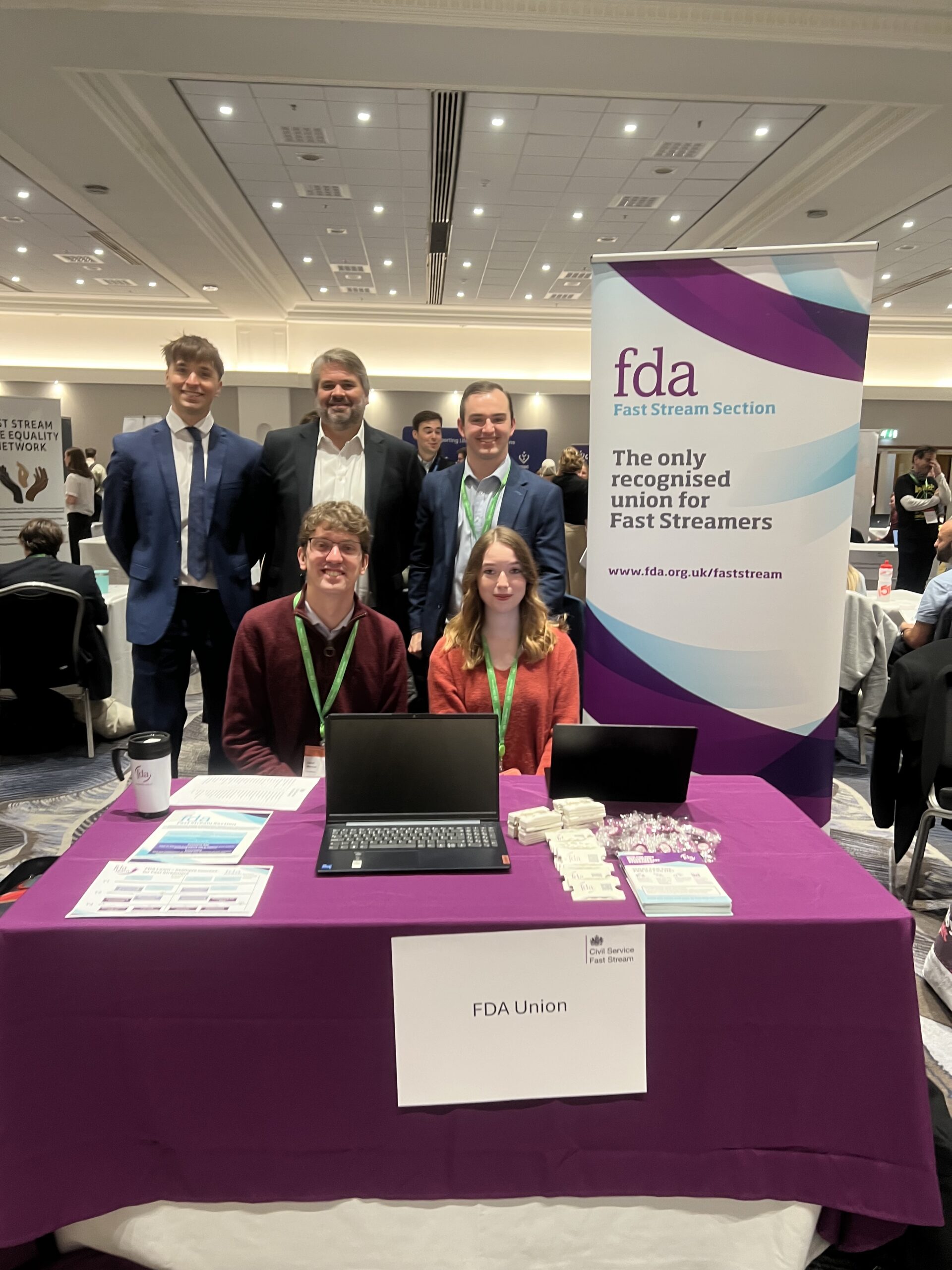
FDA at Fast Stream Base Camp 2025
FDA Fast Stream reps have been in Birmingham for Fast Stream Basecamp, welcoming new first year Fast Streamers, speaking to them about the union’s work and how to get involved.